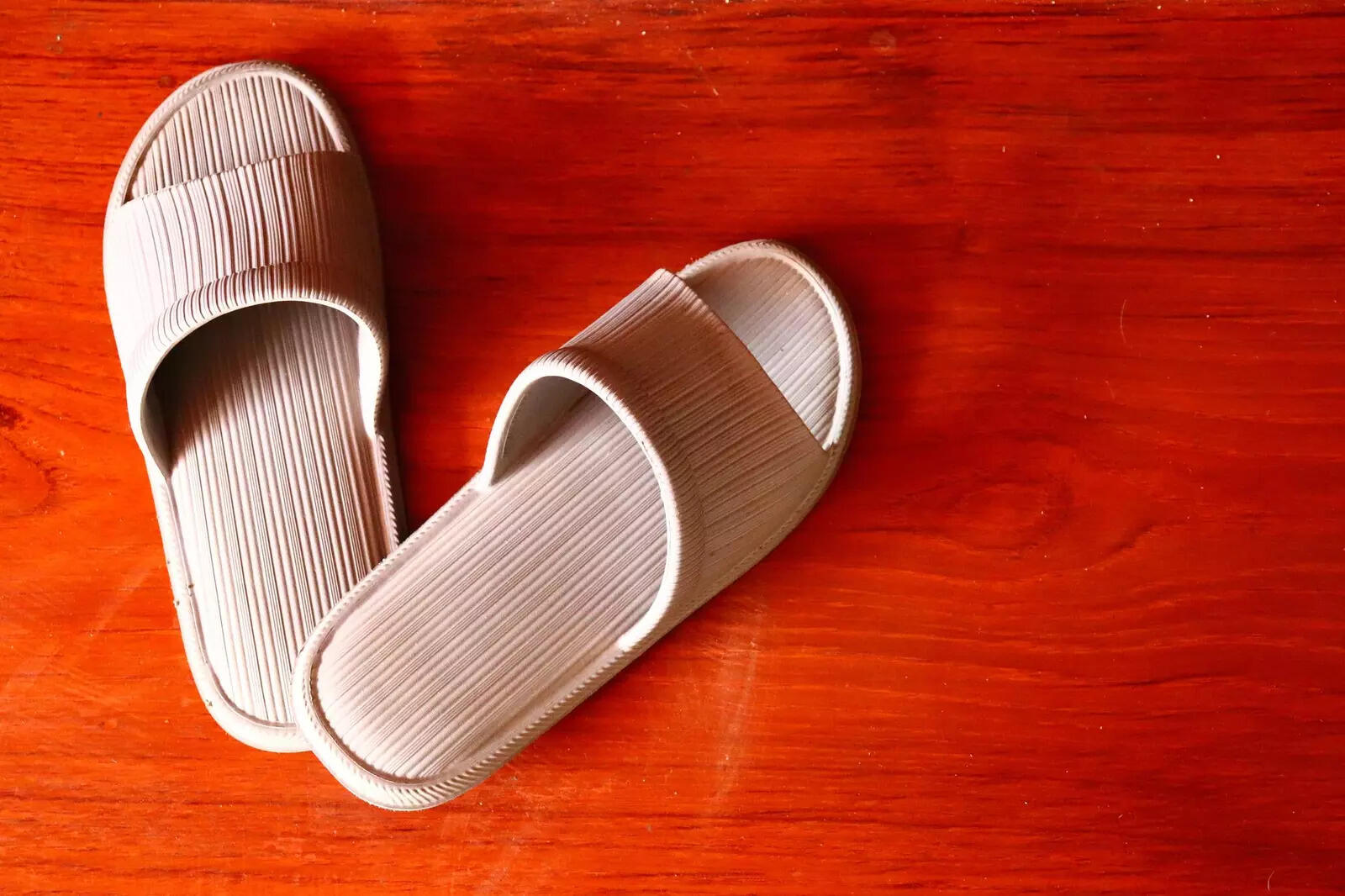Why Upside-Down Slippers Are Considered Bad Luck In India: Myth Or Reality?
Ever been warned by your grandparents or parents, “Ulti chappal mat rakha kar” meaning don’t keep your slippers upside down? This common Indian superstition has been passed down for generations, cautioning that upside-down slippers invite misfortune. But why does such a seemingly small act carry so much weight in Indian culture? Let’s explore the beliefs, astrology, and Vastu logic behind this curious superstition.
Why Are Upside-Down Slippers Considered Bad Luck?
One traditional explanation is that turning a slipper upside down exposes the dirty sole to the sky or heaven, which is said to anger divine entities. It’s believed that this act shows disrespect to guardian angels and the protective forces that watch over the home.
Another perspective suggests that upside-down footwear creates an opening for negative energies to enter the house. Superstition holds that such placement can bring misfortune, quarrels, or disturbances in domestic harmony.
Vastu Shastra and Feng Shui Insights
According to Vastu Shastra and Feng Shui, an upside-down slipper may invite conflicts among family members. The longer the slippers remain inverted, the longer tensions are said to linger, disrupting peace and harmony at home.
Hindu Beliefs and Astrology
Hindu tradition links upside-down slippers to displeasing Mata Lakshmi, the goddess of wealth, potentially leading to financial loss. In Vedic astrology, Lord Shani (Saturn) is associated with footwear. Placing slippers in an inverted position can supposedly anger Shani Dev, bringing obstacles, misfortune, and even symbolising illness or bad luck.
The Core of the Belief
While explanations vary, the central idea is respect. Shoes that touch the ground are considered impure, and keeping them upright is believed to maintain positive energy, spiritual harmony, and domestic peace. Simple acts like placing slippers correctly are seen as a way to honour both your home and the protective spiritual forces.

Why Are Upside-Down Slippers Considered Bad Luck?
One traditional explanation is that turning a slipper upside down exposes the dirty sole to the sky or heaven, which is said to anger divine entities. It’s believed that this act shows disrespect to guardian angels and the protective forces that watch over the home.
Another perspective suggests that upside-down footwear creates an opening for negative energies to enter the house. Superstition holds that such placement can bring misfortune, quarrels, or disturbances in domestic harmony.
You may also like
- Delhi Red Fort blast: Special Cell detains car dealer who sold Hyundai i20 used in explosion; cops tracing ownership chain
- Indian stock market rises for 3rd consecutive day this week
- Retail inflation slows to a decade low of 0.25% in October
- Delhi blast: Five arrested in Assam for 'inflammatory' posts
- Top 5 Footwear Styles That Go Perfectly with Sarees | Saree Heels & Sandals on Amazon
Vastu Shastra and Feng Shui Insights
According to Vastu Shastra and Feng Shui, an upside-down slipper may invite conflicts among family members. The longer the slippers remain inverted, the longer tensions are said to linger, disrupting peace and harmony at home.
Hindu Beliefs and Astrology
Hindu tradition links upside-down slippers to displeasing Mata Lakshmi, the goddess of wealth, potentially leading to financial loss. In Vedic astrology, Lord Shani (Saturn) is associated with footwear. Placing slippers in an inverted position can supposedly anger Shani Dev, bringing obstacles, misfortune, and even symbolising illness or bad luck.
The Core of the Belief
While explanations vary, the central idea is respect. Shoes that touch the ground are considered impure, and keeping them upright is believed to maintain positive energy, spiritual harmony, and domestic peace. Simple acts like placing slippers correctly are seen as a way to honour both your home and the protective spiritual forces.









